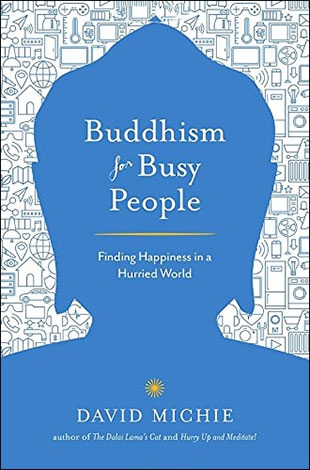The pursuit of happiness is a time-consuming rollercoaster ride with plenty of ups and downs — especially when we allow our galloping desires and our entrenched aversions to dominate our emotions each and every day. Tibetan Buddhism offers an alternative to this frenzied ride and David Michie, a corporate communications consultant, published novelist, and longtime Buddhist practitioner, describes this inner path to a more peaceful and rounded life. The Australian author embarked upon a meditation practice after a medical emergency.
He describes Buddhism with its Four Noble Truths as "the ultimate self-development program." The doctrine of karma grants us permission to create our own future happiness or misery. This inner path eschews the predominant blame culture and emphasizes personal responsibility instead. The author recommends that we live each day as a bonus. More wisdom comes from the Tibetan Buddhist sage Shantideva:
"All the joy the world contains
Comes through wishing happiness for others.
All the misery the world contains
Comes through wanting pleasure for oneself."
Openness to others is not a natural thing to do in a culture where fear of the stranger is the norm. Michie admits:
"This is the one aspect of the Dharma with which I particularly struggle. I will see someone in the street, make an immediate, snap judgment about the kind of person they are, and immediately establish a sense of Otherness, whether positive or negative. I recognize this failing on an intellectual level, but conditioning doesn't disappear overnight, or even in the course of a few years."
In a chapter titled "Finding Happiness in Daily Life," the author discusses generosity as the antidote to unhappiness, the perfection of ethics, the importance of patience, and the practice of tonglen.
Originally published in 2008, this practical book has a new introduction for the age of the iPhone.
